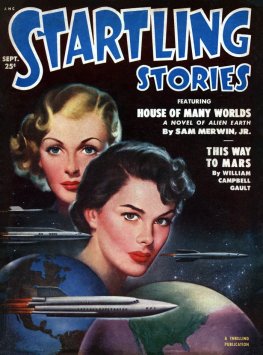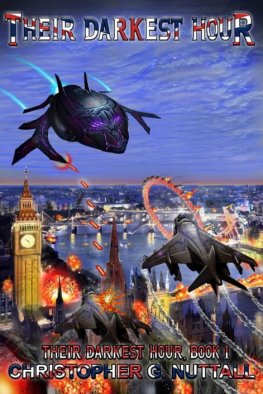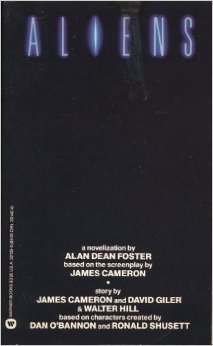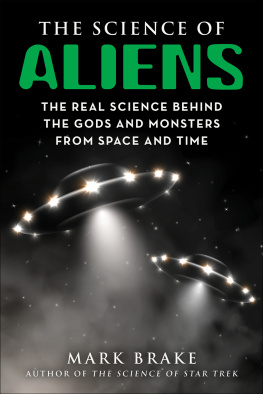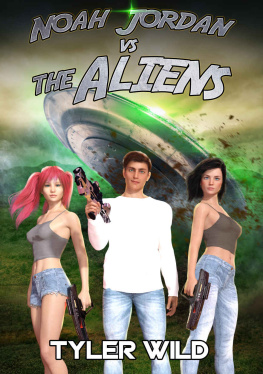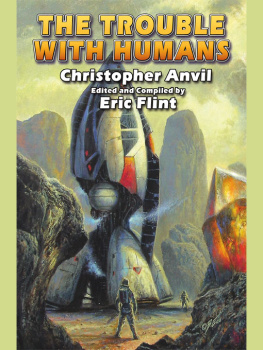John D. Macdonald
Death Quotient and Other Stories
Originally published in Super Science Stories, April 1949.
Into the hearts of warring nations came Martin Rhodes voice, heard on every radio in the world: You must lay down your weapons, live out your last days in peace. Because before the week is out, this planet will be no more!
Second Lieutenant Martin Rhode stood well back from the cave mouth and watched the slow dusk settle over the Chemung valley. By force of habit, he kept his hand cupped around the glow of his cigarette, though there was no chance that it could be seen from aloft.
Far down the slanting throat of the cave a shaft of light glowed, and Rhode turned, angrily warned the man who had carelessly parted the blackout curtains.
Sorry, Martin, the man said as he came up. Martin recognized the voice of Guy Deressa, the civilian responsible for convoy loading.
They stood together, looking toward the silver-grey shape of the river a quarter-mile away.
Anything new? Martin asked Deressa.
Same old picture. Enemy patrols penetrated our lines at several points during last night. Main lines still static. Our rockets were mostly intercepted, but a few got through and did unknown damage to enemy shore installations. As usual, the camera rocket failed to get through interception.
Martin yawned. This was the twenty-minute war, he said.
There was no mirth in Guy Deressas answering laugh. Twenty minutes or twenty years. Somewhere in between. Are you going to see Alice this trip?
If she can get away from the station hospital. But only for a few minutes. Well have to turn around, and get back here before daylight. How many vehicles? They told me thered be twenty.
Only eighteen could pass inspection. The load is small arms and small arms ammunition. High-velocity stuff.
There was a lean, dark alertness about Martin Rhode. During the three long years of invasion, he had learned to relax in his idle moments. He had learned how to seek cover, how to kill, how to harden himself to the death of those who were close to him.
The atomic bomb had proven to be an almost perfect weapon during the first two weeks of the war. Millions had died. But human courage and resource had rendered obsolete the vast, white flare, the mushroom cloud.
In the first weeks of war, every center of industrial production in the United States had been wiped out, along with an estimated forty-five million people. But from the secret launching stations that were undamaged, the retaliatory rockets had smashed the vast resources of the potential invader.
There followed a lull of almost a year, while each participant licked wounds, decentralized, made a national inventory of tools and resources, and established new production facilities in deep places in the earth.
Having suffered the least damage, the invader was able to equip a fleet and, after almost crippling losses, establish a beachhead on the New England coast. Six months later the expanded beachhead reached to within eighteen miles of where the city of Albany had once stood. It reached south to Atlantic City, and north to the eastern shore of Hudson Bay.
And for a year and a half the lines had remained practically static. It was vicious war, without principle, without mercy. Due to the decentralization of facilities and the use of vast underground defensive networks, the usefulness of the atomic bomb had become much like that of a sledge hammer for driving a tack. In the Second World War, no sane artillery commander would have tried to kill a single man on a distant hill by the use of a 240 mm. howitzer.
The parallel of trying to smash a small outpost with an atomic bomb was a close one. The production of each bomb was a serious drain on the resources of the weakened nations. There had been a return to guided missiles with high-explosive warheads. A dead-center hit with such a rocket would do as much damage to the personnel involved as would the far greater and more wasteful power of the atom.
The nations of the world had, for all practical purposes, given up the symbols of independent nations. There were merely we and they.
The invader had a bridgehead of equivalent size in Brazil, and the third focus of combat was along the Salween River, where an industrialized India had joined forces with Burma and Siam to halt the invader in the heart of the malarial country.
For a year and a half it had been a war of knife and pistol and bare hands. As the rockets became more accurate, so did the interceptor rockets. As the powerful vortex stations increased the fury and height of their invisible aimed cyclones, the crewed bombers flew ever higher. As pestilence struck, the inoculations became more effective, and bacteria distribution had been abandoned as an effective weapon.
In the end, both sides had learned that the weapon which would win would be brave men, armed with portable weapons, who could kill other brave men at close quarters.
Martin Rhode lifted the cigarette to his lips with an awkward gesture. Each week the stiffened shoulder became more limber. Soon, he knew, he would be returned from detached service to his original unit, and would once more head up his trained and experienced patrol on their nightly forays into invader territory. As he thought of it, fear was a cold, wet substance in his guts. Combat had been a hell of a lot different than he had expected. He had been eleven years old when he saw the movies of the Jap surrender in Tokyo Bay. At that time he had lived in a dream world where he was a staunch Marine running cursing up some sandy beach, hurling grenades, thrusting with the bayonet.
He mashed the cigarette out against the rock wall of the cave, followed Guy in through the blackout curtains. Eighteen huge trucks, loaded, with the tarps tied down, stood nose to tail on the quasi-level floor of the cave. The drivers stood in a small group, laughing and talking.
Since the roads had been pretty well smashed, the trucks were semi-tracked vehicles with drive on the front wheels as well, diesel-powered, weighing twelve tons empty.
Okay, Martin shouted. Ready to Roll.
The group split up and the men sauntered to their trucks, clambered up into the high cabs. The driver of the lead truck was already behind the wheel, wearing a black blindfold so that his night vision would be at peak as soon as they rolled out the tunnel entrance.
On handy brackets in each cab were the lightweight Galton guns, with their full drum load of two thousand of the tiny twelve-caliber slugs, ready to fire at muzzle velocity of 6000 feet per second, a cycle of fire of 1500. No man had ever survived who had been hit in any part of his body by a Galton slug within a half-mile range. The impact of the slug produced hydrostatic shot, exploding the heart. Very little talent was needed to fire a Galton gun effectively, as the drop was only an inch and a half at six hundred yards.
The massive trucks were loaded with more Galtons and tremendous loads of ammunition.
When they were ready, the tunnel lights snapped out. The driver of the lead truck took off his blindfold and as the curtains drew back, they could see ahead the pale oval of the tunnel entrance.
The starters whined and the motors caught, roared. The lead truck lurched into motion, crawling out through the tunnel entrance, turning left to reach the junction of what had once been Route 17. The destination was near the relatively undamaged town of Oneonta, a division supply point some nine miles beyond the town where camouflaged elevators would take the huge trucks, one at a time, down to the third level for unloading. Division vehicles would distribute the supplies from there.
The invader bomb that had smashed Binghampton had been exploded at a height of nine hundred feet. The radiation from the jumbled debris had long since dropped below the danger point. The vast patch of vitrified earth made maximum night speed possible.

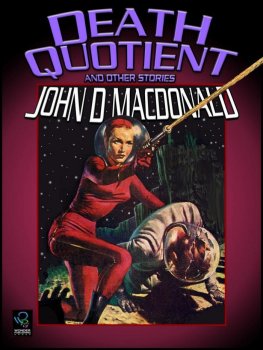
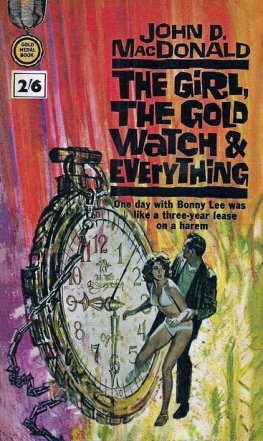

![Dzhon Makdonald - Area of Suspicion [= My Brother’s Widow]](/uploads/posts/book/910202/thumbs/dzhon-makdonald-area-of-suspicion-my.jpg)
![Dzhon Makdonald - Wine of the Dreamers [= Planet of the Dreamers]](/uploads/posts/book/910462/thumbs/dzhon-makdonald-wine-of-the-dreamers-planet-of.jpg)
